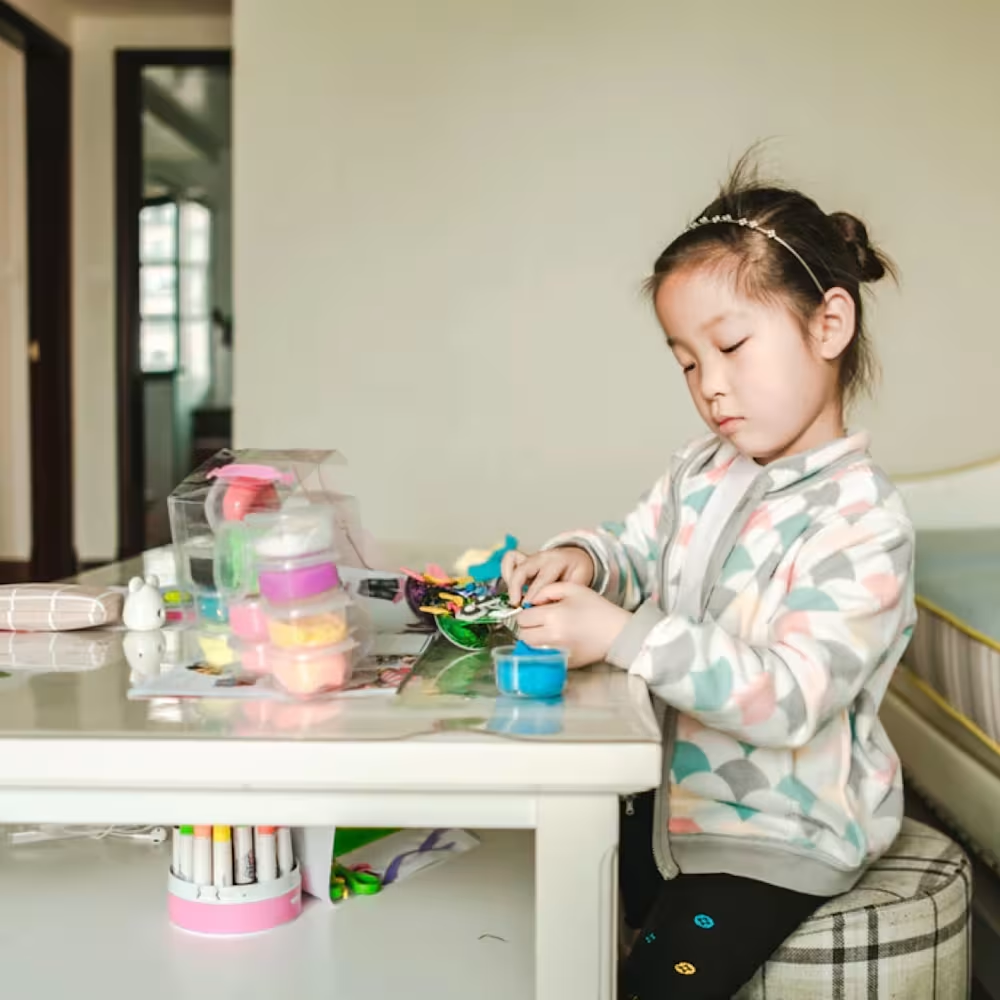What to do if your toddler prefers one parent over another
Updated Jan 12, 2026

By the time babies reach toddlerhood, they’ve experienced enough of the world to develop distinct preferences. Before they can even string a sentence together, they know which sippy cup they prefer to drink from, which stuffed animal they prefer to cuddle with, and even which parent they prefer to care for them.
Since language skills are still developing, toddlers will often make these preferences known loud and clear by using a combination of emotional expressions and gestures (i.e., pointing to the preferred object/person and swatting away the less preferred object/person).
While this can be hard on parents (particularly on the non-preferred parent), rest assured that your toddler’s preferential treatment is a normal — and usually short-lived — phase of development.
What is toddler favoritism?
Toddler favoritism occurs when toddlers only allow a certain parent or caregiver to spend time with them or look after their needs. This can sometimes look like defiance. For example, a toddler may refuse to nap unless the preferred parent puts them down or they may if the non-preferred parent tries to help them get dressed.
What causes toddler favoritism?
Toddler favoritism is the normal and natural outcome of repeated, positive interactions with the same parent or caregiver. When toddlers spend lots of quality time with one parent and less time with the other parent, they instinctually gravitate towards the parent they spend more time with. This is not because they love that parent more, but simply because that parent is more familiar and, in turn, more predictable to the toddler.
What the research says
Research [] shows that when children are young they develop hierarchies of attachment, meaning they prioritize certain relationships over others. For example, if a toddler gets hurt and mom, dad, and grandma are all in the room, the child will automatically reach for the caregiver whom they have ranked highest in their hierarchy. This hierarchy is not based on whom the toddler loves most, but rather on whom they are most familiar with: Familiarity signifies safety to the toddler.
Since young children are dependent upon their relationships with adults for their survival, they use these hierarchies of attachment as a means of cataloging the significant people in their lives. However, as toddlers grow and their memory improves, they become a lot less rigid in their relationships and develop the same amount of comfort with multiple caregivers.
What the preferred parent can do
If you're the preferred parent, include the non-preferred parent in as many of your interactions with your toddler as possible. For example, if your toddler demands that you get them ready for bed, tell them that you will give them a bath, but that the other parent will help them put on their pajamas.
When addressing the non-preferred parent, be sure to use a positive and friendly tone of voice. This reminds your toddler that the non-preferred parent is not only safe and trustworthy, but should be treated with kindness and respect.
What the non-preferred parent can do
If you're the non-preferred parent, your job is to be as non-reactive to your toddler’s preferences for the preferred parent as possible. When your toddler demands the preferred parent, respect their preference without interfering.
However, if your toddler wants the preferred parent and that parent is unavailable, you can validate your toddler’s desire and then gently step in to help. For example, “I know you want mommy to change you. She can’t right now, but I’d love to help you.”
Tips for dealing with toddler favoritism
It can be tough when you feel like your toddler has a strong preference for your partner over you. Here are some things to keep in mind.
Don’t take it personally
It’s extremely common to take your toddler’s preferences personally, particularly if you're the non-preferred parent. However, when you perceive your toddler’s favoritism as a personal rejection of you rather than as a normal and temporary phase in your child’s development, you risk reacting to your toddler’s behavior in ways that only serve to reinforce the favoritism.
For example, shaming the toddler for “not being nice” or scolding the toddler for “hurting” the the non-preferred parent’s “feelings” not only confuses the toddler, who is simply expressing their need for safety but also puts additional strain on the relationship with the non-preferred parent.
Don't feel guilty
Toddler favoritism can also be difficult if you're the preferred caregiver and you feel guilty or like you've caused your toddler to become “more attached” to you. However, you've likely done nothing to make your toddler favor you other than be physically and emotionally available to them more frequently than the non-preferred caregiver. This is not something for you to beat yourself up over or for the non-preferred caregiver to resent. It’s simply how parent-child attachment works.
Know that this is temporary
Remember that toddler favoritism is generally a temporary situation, even when it occurs with people other than the child's parents. Sometimes the preferred caregiver is neither one of the toddler’s parents. This usually comes about when the toddler is looked after by a caregiver like a grandparent or a nanny. This can be particularly painful to parents who already feel guilty for having to leave their toddler in somebody else’s care.
However, reassure yourself that your toddler’s preference for the caregiver is simply the result of a caregiving arrangement that is not only necessary (i.e., so both parents can work) but also short-term. Eventually, the toddler will outgrow the need for the caregiver while you'll continue to be important to your child throughout their life.
A final word
Finally, it's important to note that a toddler's preferred parent one day might be their non-preferred parent the next day. In other words, toddlers' preferences change, particularly when parents spend more or less the same amount of time with their toddler.
In the end, what is most crucial is not whether you are the preferred parent or the non-preferred parent; it’s that you consistently and unconditionally show up to meet your toddler’s needs no matter what he may think of you on any given day. When you do this, you can't help but develop a close relationship with your child, not only during toddlerhood but also in years to come.
Takeaway
Toddler favoritism is developmentally normal: Preferring one parent is a common phase rooted in familiarity and a toddler’s need for predictability and safety.
It’s all about attachment: Toddlers gravitate toward the caregiver they feel most familiar with at the moment, which can shift over time and change day to day.
Both parents play an essential role: The preferred parent can gently include the other, while non-preferred parents can work on staying calm, responsive, and available without forcing connection.
Strong reactions can unintentionally reinforce preferences: Staying neutral, avoiding guilt or shame, and validating your toddler’s feelings can help prevent favoritism from becoming more entrenched.
This phase almost always passes: As toddlers grow and gain flexibility in their relationships, they typically become more comfortable with multiple caregivers, especially when adults stay consistent and supportive.
Share article:
Note: The content on this site is for informational purposes only and should not replace medical advice from your doctor, pediatrician, or medical professional. If you have questions or concerns, you should contact a medical professional.
1 Sources
Share article:







